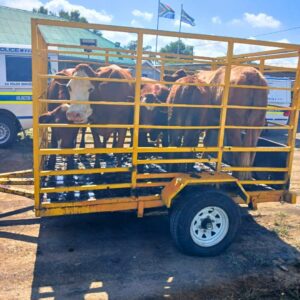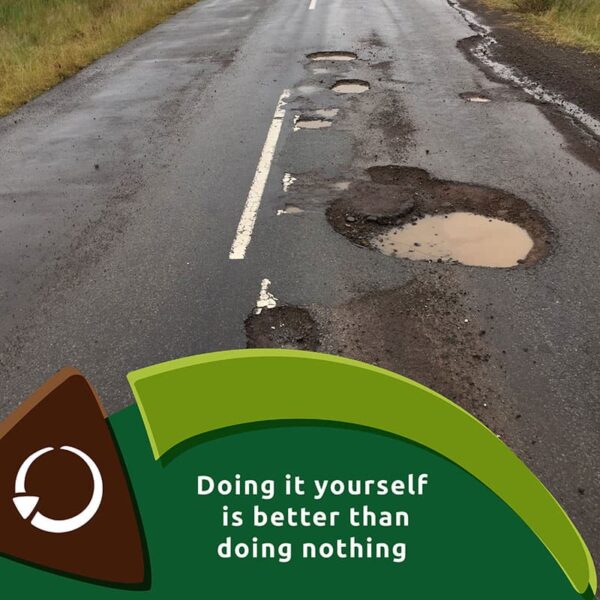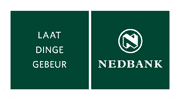

While October is considered by politicians as “transport month” to supposedly focus on the important theme of the country’s progress, numerous agricultural associations in the Free State were once again forced to put their hands in their own pockets to repair critical roads.
Dr Jack Armour, commercial manager of Free State Agriculture (FSA) believes that the public spectacles during which political expressions of transformation and job creation were used to whip up crowds, did not make any difference to the ‘ordinary man on the street’ or agriculture in the Free State. “Free State Agriculture and the community of the Free State remain disappointed about real progress on the part of the state to solve the massive transport problems, especially in the rural areas and on dirt roads.”
Armour adds that the transport workers unions have also severely disrupted the economy by forcing the operations of essential ports, ports and rail network to a standstill for excessive wage increase demands. “Transport month is basically over and there is still no real difference to be detected in our road infrastructure.”
Francois Wilken, president of FSA, also believes that issues such as overloaded and dangerous manganese trucks that cause enormous damage to roads, as well as the large-scale looting and collapse of our rail transport network must be urgently addressed. “Free State Agriculture is still waiting for urgent questions from our submission to the Free State government’s executive committee (EXCO) in May this year to be referred to the Economic cluster and be answered.”
Questions, among others, such as:
Meanwhile, Armour mentions that there may be one glimmer of hope from transport month through the evidence that the SANRAL App could be used effectively to clearly show the extent of tarmac damage and can be used for prioritizing work. “Free State Agriculture’s current strategy for the roads is to have all the potholes on our tar roads repeatedly applied to the SANRAL application through our ground level structures. We also encourage any road user to download the app and help us upload the potholes and broken road shoulders on it. Where the pitfalls show the most are prioritized. Where SANRAL does not have control over the provincial or municipal road, the information is forwarded to the necessary level of government with evidence. Where the provincial or municipal structures fail to pay attention to the roads within a reasonable time, a presidential mandate can give the task and funds from treasury to SANRAL with its proven track record to properly repair the roads.
With the rainy season already upon us, Free State Agriculture also continues to put pressure on the government to carry out the urgent preventive maintenance work on our dirt road infrastructure. And where necessary, to coordinate actions where the agricultural community can join hands with the state to solve an urgent road problem.










Ⓒ 2024 Vrystaat Landbou All rights reserved | Website by BrandNew